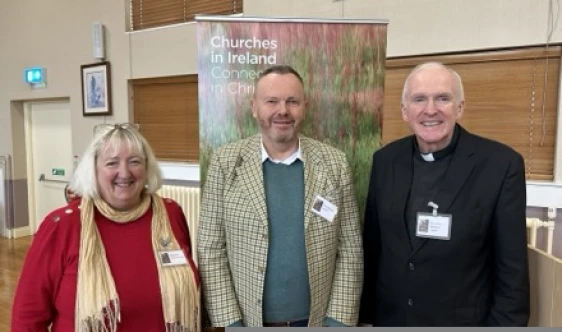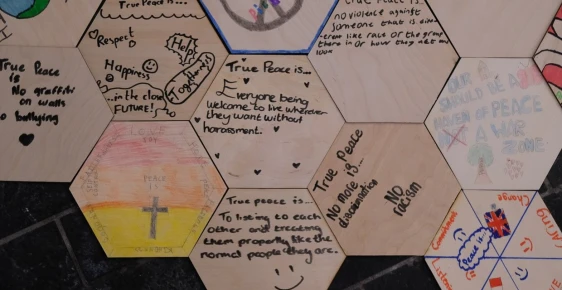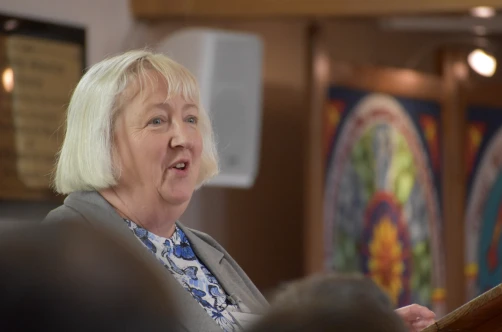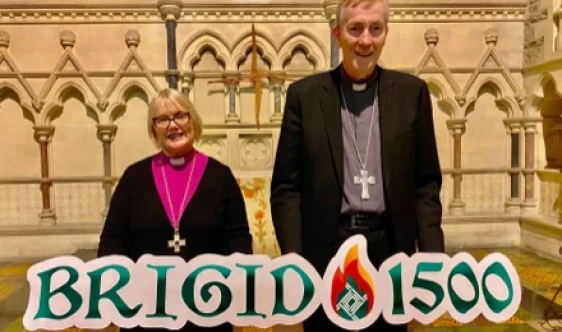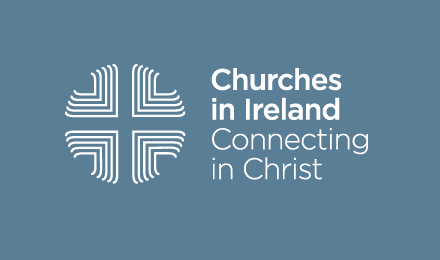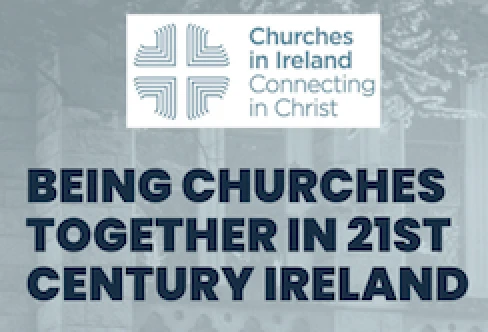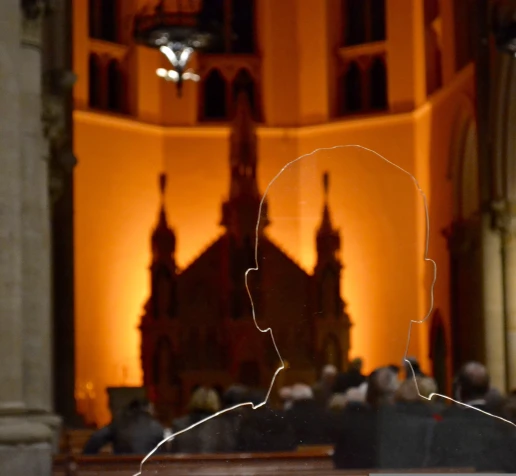
‘Healing cannot take place where there is no hope. Healing is a long process and can’t be achieved through a bureaucratic procedure no matter how well meaning. If Government and society failed the families of the millions who we remember with pride and solemnity today perhaps we should not repeat the mistake for those who are standing right beside us and whose hearts still break.’
– Rt Rev John McDowell, Bishop of Clogher.
Every year churches in Enniskillen take an active part in local events for Remembrance Sunday. This year commemorates the centenary of the Armistice which brought the First World War to and end in 1918. Enniskillen was the first town in the United Kingdom to publicly proclaim the Armistice in 1918 and on this occasion it was the most westerly location to host “Battle’s Over” – a national tribute commemorating one hundred years of remembrance.
The Remembrance Day service this year took place in St Macartin’s Cathedral and was led by Bishop John McDowell, Bishop of Clogher. Monsignor Peter O’Reilly, the Parish Priest of St Michael’s Enniskillen & Lisbellaw and Archdeacon of the Diocese of Clogher read from the Gospel according to John 15 during the service which was attended by representatives from the British and Irish Governments.
Later evening prayer was celebrated in St Michael’s Church with large crowd in attendance. At the end of the Remembrance Day service lights in the Cathedral were extinguished; all but one flame – which was represented in St Michael’s Church.
During the service, in which the local ministers of the Church of Ireland, Methodist and Presbyterian Churches participated, the light from the single flame was shared to evoke a sense a return of peace. Following the service, the flame was carried back across the street to St Macartin’s Cathedral and from it was lit a beacon to commemorate the end of the War.
Reflecting on the parallels of healing the wounds of conflict 100 years ago and today, Bishop John McDowell said:
‘The First World War was an immense, collective, physical and mental trauma for millions throughout Europe. In some senses the wounds of that war have never healed. By and large returning soldiers and their families were simply left to get on with it. Somehow or another many managed to do just that. But many did not. Perhaps the depth and breadth of the psychological trauma was just too great for any government or any society to deal with.
After all our understanding of the effects of conflict was in its infancy then. There was no National Health Service and virtually no counsellors.
But we don’t have those excuses today.
Indeed given where we are here in Enniskillen, not a quarter of a mile from an act of brutality which would compare with anything that happened during the Great War, I wonder do we (Government and people) really appreciate the depth of trauma that still exists at our soul’s centre and are we really prepared to face up to what it will cost, in every sense, to address that trauma?
It is often said that World War One veterans rarely spoke of their experiences. Perhaps recalling in detail would have been too painful. Perhaps they wanted to protect those who they loved. Or perhaps they didn’t speak because they knew that people would not listen. You see truly to listen means giving not just our ears but our eyes, our minds and our hearts to those who suffer. Someone once said that being with a person who is suffering without being affected by that suffering is like expecting to walk through water without getting wet. Sadness and grief are the hardest emotions to deal with. Anger is much easier.
Remembrance Sunday in Enniskillen is always a day of mixed emotions. Thankfulness for the sacrifice of so many from this area who gave their lives to battle or disease one hundred years ago. Gratitude to the many since then who may have had to put on a uniform and carry a gun but who had peace on their minds. Compassion for those whose hurt and burning indignation remain.
And, I trust, in a great arc of compassion above all of these, the love of God in Jesus Christ; in whose sacrifice the sorrows and sins of the whole world were concentrated and burnt up, when He went deeper into human suffering than even war itself could go and rose on the third day with a Kingdom in his hand.’
Emphasising the reconciling of different identities in Christ Monsignor Peter O’Reilly, PP Enniskellen and Archdeacon of Clogher said:
‘Each of us has an intention in our hearts that brings us here. Our intentions come in large part from who we are, from our identity. Identity isn’t just about habits, appearances, activities past and present. Identity is also about who we want to be: goals, hopes, dreams & aspirations. So what brings us here this evening is about our identity too. We are here not only because of who we are; we are also here because of who we want to be.
[…]
‘So our lighting a candle is no mere pretty thing, no mere sentimental thing: flame burns and sears; light searches us out. The beacon we light tonight in the Cathedral grounds across the street is a double–edged thing. It is the beacon of peace that emerged from the suffering and sacrifice of previous generations. It is also a beacon that calls us to do what is needed to ensure that future generations will know peace too. It is a light that calls us to pay attention to our basis sense of Christian humanity. It is a light that calls us to pay attention to God.’
